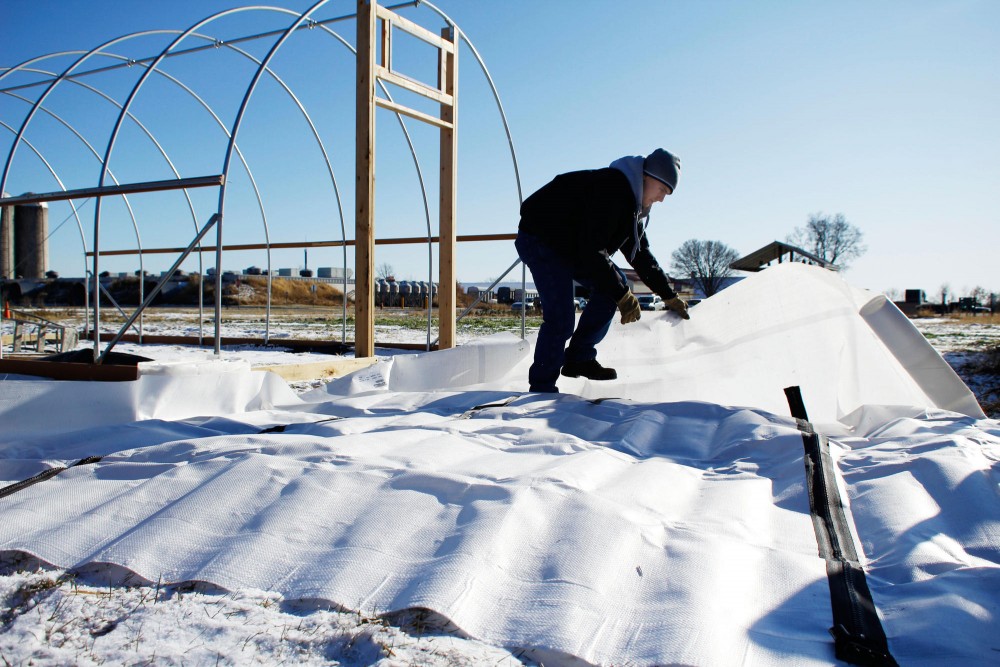Watching his father constructing high tunnels âÄî structures that keep crops warm during the winter âÄî sparked Spencer BarriballâÄôs interest.
The farming bug hit the University of Minnesota horticulture student when his father started working on a farm three years ago.
âÄúMy dad is not a farmer by trade,âÄù Barriball said. âÄúBut we moved here from Florida, and heâÄôs been working on [a farm] and building high tunnels there.âÄù
Since the beginning of this semester, Barriball has been building high tunnels on the Cornercopia farm, the College of Food, Agricultural and Natural Resource SciencesâÄô student-lead organic farm on the St. Paul Campus
âÄúAfter seeing my dad construct the tunnels, I decided IâÄôd learn more about them and growing from an educational standpoint,âÄù he said.
The tunnels are 14 feet by 24 feet unheated, plastic-covered structures that are used to help market gardeners extend their growing season by providing environmental protection.
They are beneficial year-round because they provide protection from wind and rain, which results in increased crop yields and improved quality. They can help decrease pest and disease problems and prolong the growing season, even in cold climates.
Barriball said he is interested in the production of local foods and knows that high tunnels can extend the growing season for Minnesota farmers.
âÄúI think itâÄôs really important to give people options when it comes to fresh produce rather than them just having to go to the supermarket,âÄù he said.
Albert Markhart, a University horticulture professor who is working with Barriball on the tunnels, said there is more to the structures than meets the eye.
He said the tunnels are part of their season extension efforts on the student farm. Students have more opportunities to grow because the season is longer with the tunnels.
âÄúWeâÄôre all about season extension in our department, and the tunnels are one of the most important ways students can get experience with that concept and growing in general,âÄù Markhart said.
Many other students in the department have been helping to construct the high tunnels and using the experience to learn more about them. They have already built one and are making progress on the second.
âÄúI require my students to get their hands dirty, and working with the tunnels is one way that they can fulfill that,âÄù he said.
Tyler Albers, a horticulture senior, has seen firsthand the impact the high tunnels could have on farms.
Albers, an Iowa native, has been working on his family farm his entire life.
He said he plans to use high tunnels when he graduates and starts working at the farm.
âÄúWe already have a high tunnel at the farm back home, and I plan on building another one when I go back,âÄù Albers said.
His family mainly grows corn and soybeans, but he plans to grow organic vegetables once he returns.
He said he was happy to be a part of the tunnelsâÄô construction and believes that they could do a lot for Minnesota farmers.
âÄúThe tunnels are a cool, novel way of extending the season and helping out the whole local food movement that is plagued by the short growing season in Minnesota,âÄù he said.
Barriball also plans to work on a farm and hopes to start his own using high tunnels to grow fruits and vegetables.
âÄúThey will come in handy because of the kind of weather we experience here,âÄù he said.


